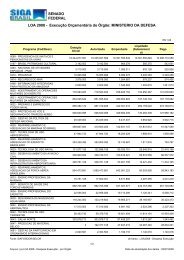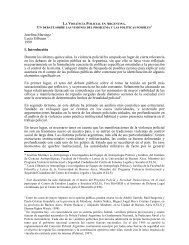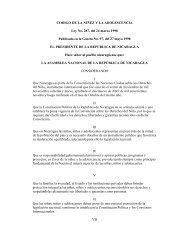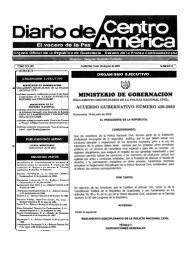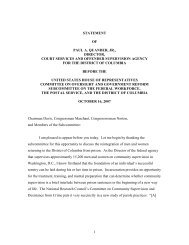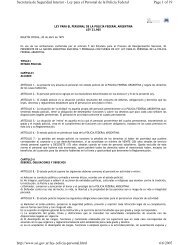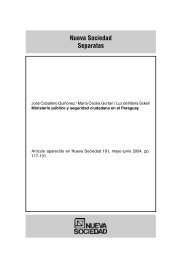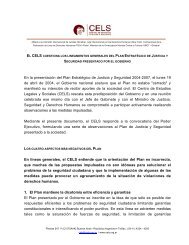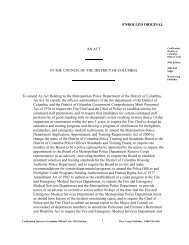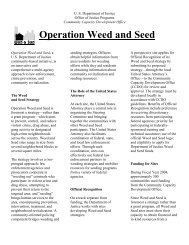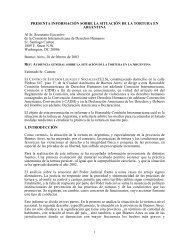Venezuela: The Life and Times of the Party System - Political ...
Venezuela: The Life and Times of the Party System - Political ...
Venezuela: The Life and Times of the Party System - Political ...
You also want an ePaper? Increase the reach of your titles
YUMPU automatically turns print PDFs into web optimized ePapers that Google loves.
Valencia, Maracay, <strong>and</strong> Caracas) that only narrowly missed succeeding. Divisions in <strong>the</strong> armed<br />
forces, especially <strong>the</strong> army, have not been resolved. 1 Moreover, <strong>the</strong> popularity <strong>of</strong> <strong>the</strong>ir leaders,<br />
above all Lieutenant Colonel Hugo Chavez Frias who has become something <strong>of</strong> a popular hero,<br />
poses a continuing challenge to <strong>the</strong> legitimacy <strong>of</strong> democratic politics <strong>and</strong> especially <strong>of</strong> <strong>the</strong> party<br />
system.<br />
<strong>The</strong> mass <strong>of</strong> <strong>the</strong> <strong>Venezuela</strong>n public continues to prize democracy, but people’s<br />
commitment is increasingly shot through with cynicism <strong>and</strong> a growing rejection <strong>of</strong> political parties.<br />
Available survey data show consistently strong support for democracy as a political system <strong>and</strong><br />
also for <strong>the</strong> procedural norms <strong>and</strong> principles <strong>of</strong> legitimacy on which it is founded. Elections are<br />
widely acknowledged as <strong>the</strong> most legitimate path for political change <strong>and</strong> <strong>the</strong>re is broad rejection<br />
<strong>of</strong> military or single-party rule <strong>and</strong> strong support for criticism by opposition parties. Although<br />
criticism <strong>of</strong> governments (as inept or corrupt) increased sharply in recent years, this has no clear<br />
impact on evaluations <strong>of</strong> democracy generally. Discontent with specific policies or leaders has<br />
thus far been transformed politically into a ‘throw <strong>the</strong> rascals out’ point <strong>of</strong> view.<br />
<strong>The</strong> optimistic implications <strong>of</strong> this scenario are undermined by growing levels <strong>of</strong> voter<br />
apathy <strong>and</strong> abstention which raise serious questions about <strong>the</strong> long-term viability <strong>of</strong> a position<br />
that rests its hopes for <strong>the</strong> future on alternation between <strong>the</strong> two major parties (thus ejecting a<br />
different set <strong>of</strong> ‘rascals’ each election). <strong>The</strong>re are not enough data at this point for analysis to<br />
confirm a trend with any degree <strong>of</strong> confidence. But it is clear that overcoming voter apathy,<br />
creating new, enduring bases for political organization, <strong>and</strong> democratizing <strong>the</strong> <strong>the</strong>ory <strong>and</strong> <strong>the</strong><br />
practice <strong>of</strong> democracy in <strong>Venezuela</strong> are <strong>the</strong> central challenges <strong>the</strong> parties <strong>and</strong> party system face<br />
in <strong>the</strong> foreseeable future.<br />
1 On <strong>the</strong> military in <strong>Venezuela</strong>, see Daniels (1992) <strong>and</strong>, in a much more critical vein, Muller<br />
Rojas (1992).



